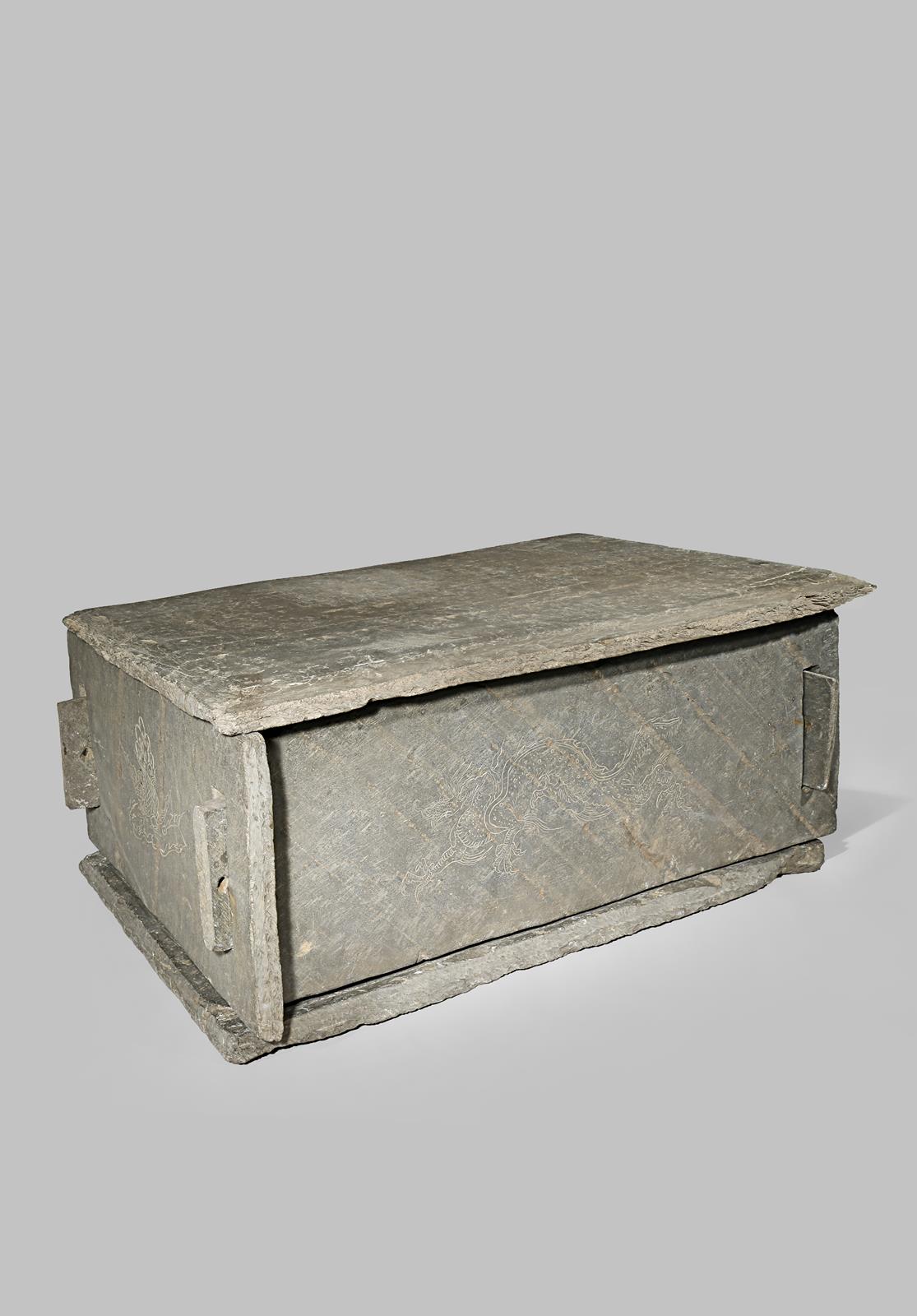Asian Art - 15th November 2017
Lot 745
A RARE KOREAN CINERARY CHEST KORYO DYNASTY 918-1392 Of rectangular shape
Estimate £5,000 - £8,000 | Hammer £4500
+ Buyers Premium
Description

A RARE KOREAN CINERARY CHEST
KORYO DYNASTY 918-1392
Of rectangular shape, made of five schist slabs and with a lid of similar form, the base and lid with grooves for slotting, the outer faces incised with depictions of the Four Guardian Animals intended to protect the deceased in the afterlife, including the Dark Tortoise-Serpent of the North, the Red Phoenix of the South, the Blue Dragon of the East and the White Tiger of the West, 33cm x 43cm x 82cm. (6)
Provenance: purchased by William Ohly, the Berkeley Gallery, from Yamanaka & Co. London in the early 1940s.
Cf. The Samsung Gallery of Korean Art, Victoria and Albert Museum, Korean Art and Design, pp.94-97 where the V&A example is illustrated and discussed. S Boulter, Back from the Grave: the Conservation of a Slate Burial Chest, Orientations, December 1992, vol.23, no.12. pp43-45. Also, Daejeon: National Research Institute of Cultural Heritage, 2013, pp.160-161.
Only four other Korean cinerary chests of this type appear to be recorded, one at the Victoria & Albert Museum and three at Seoul's National Museum of Korea. This container was originally placed in a temple and protected the cremated remains of a member of the royal family or an aristocrat. This practice became popular between the 11th and 13th centuries when the ruling elite followed Buddhist precepts, and ended with the rise of the Choson Dynasty and the spread of Neo-Confucian funeral rites in the late 14th century.